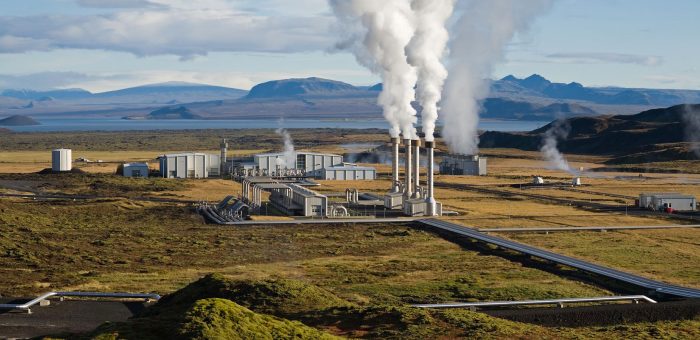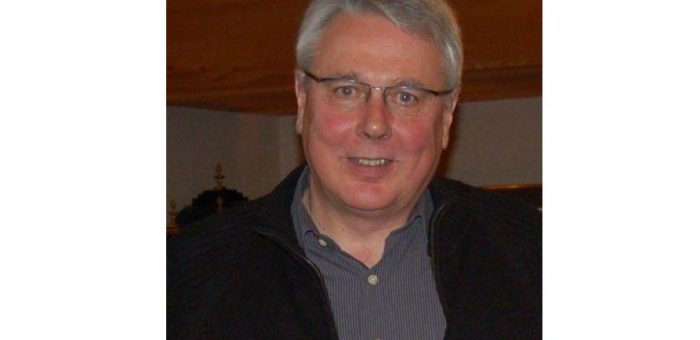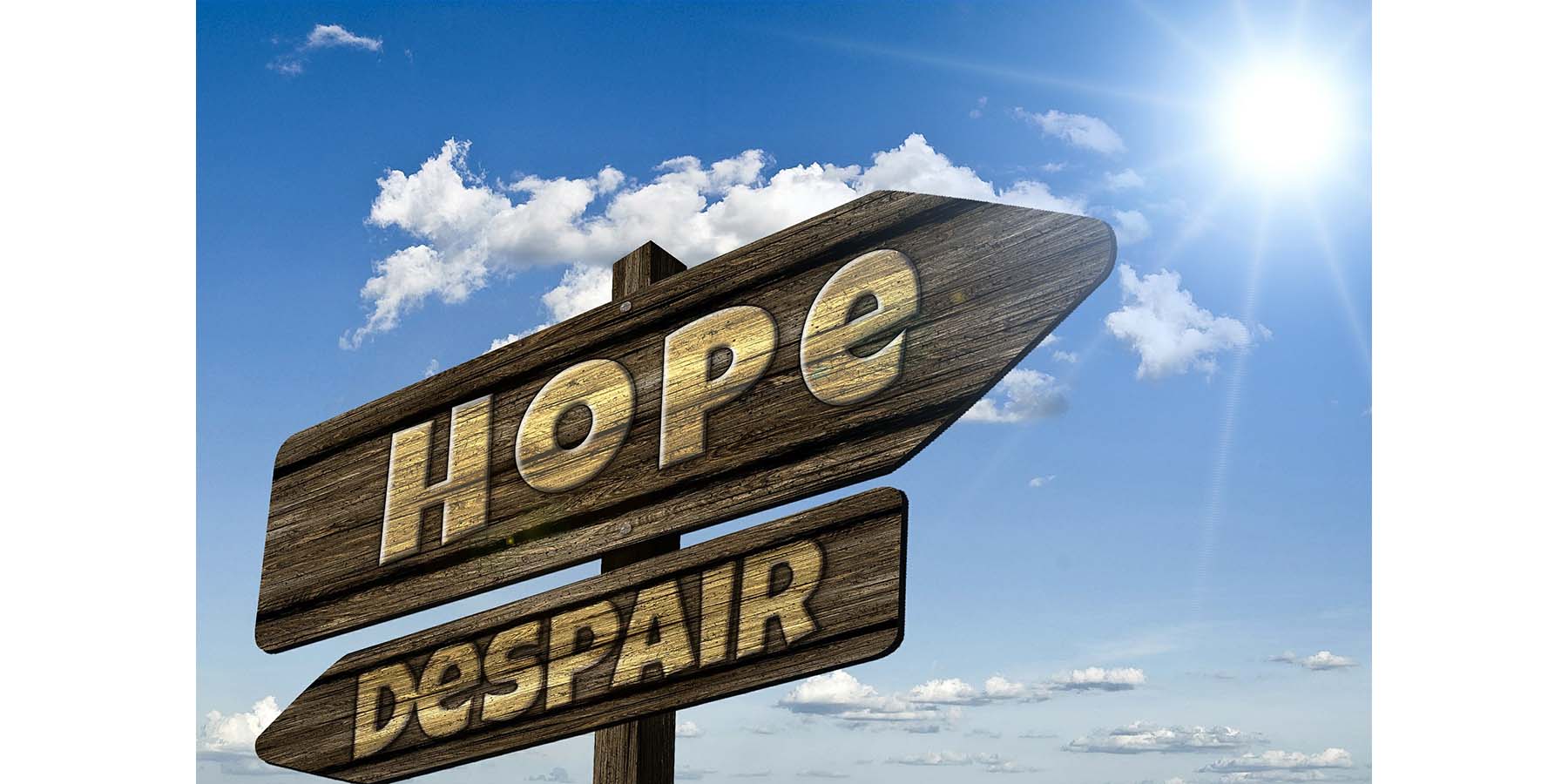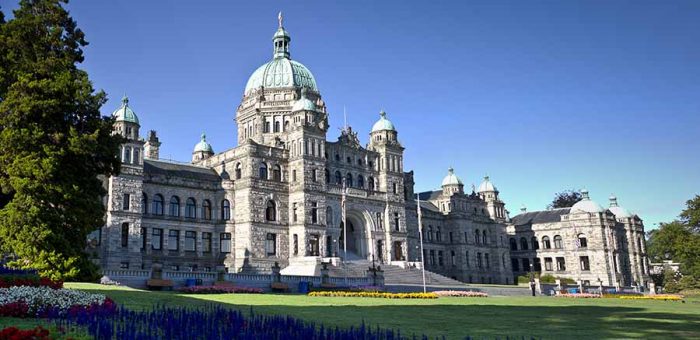Issues & Community Blog - Andrew Weaver: A Climate for Hope - Page 17
What’s BC doing to promote a low carbon economy in Northern BC?
After asking the Minister of Environment and Climate Change Strategy yesterday about the inconsistency between British Columbia’s CleanBC plan to reduce greenhouse gas emissions and the fact that the Deputy Minister of Energy, Mines and Petroleum Resources recently went to Japan to tout the idea of even more LNG development in B.C., I posed a supplemental question to the Minister of Jobs, Trade and Technology. In that question I asked what his ministry was doing to encourage a strategic approach to transitioning away from the reliance on fossil fuel development in northern British Columbia.
Below I reproduce the video and text of our exchange. The BC Liberals were once more quite boisterous in their heckling.
Video of Exchange
Question
A. Weaver: People in northern British Columbia will experience the impacts of climate change faster and more profoundly than those of us on southern Vancouver Island. This region has long been affected by the boom-and-bust cycles of fossil fuel development, where barely viable multinational entities are kept afloat through never-ending and ever-increasing corporate welfare. A just transition for rural communities away from their dependence on fossil fuel extraction and uncertainty in commodity cycles would create stable, long-lasting local prosperity. As Forbes magazine just noted this past summer, transitioning to a low-carbon economy represents the single biggest business opportunity in human history.
My question is to the minister….
Interjections.
A. Weaver: I understand there’s heckling from the Luddites opposite, who still are struggling with the issue of the science of climate change, but please give me my chance to actually ask the question of government.
The question is to the Minister of Jobs, Trade and Technology. What is his ministry doing to encourage a strategic approach to transitioning away from the reliance on fossil fuel development in northern B.C.?
Answer
Hon. B. Ralston: Our government is committed to encouraging innovation in the British Columbia economy and building a sustainable economy that benefits everyone. The tech sector is a strong and vital component of our diverse economy, employing over 120,000 people in British Columbia. But it’s important that that growth be distributed regionally, and indeed, it is being distributed regionally. There are several programs in place that are doing just that.
Innovation Central Society — the member for Prince George–Valemount will be familiar with this — is Innovate B.C.’s central technology accelerator for northern British Columbia. Through the Innovation Central Society, direct funding of $100,000 has been provided to support 14 local companies helping the region’s technology sector grow and thrive.
There are other companies. I’ll give another example, of a company in Smithers. Jet Controls is a building control dashboard that uses HVAC data and Environment Canada weather data to predict when outdoor climate will change and precondition a building’s geothermal system to be ready for whatever cooling or heating demand is placed on the system.
It’s important that the range of technology options be distributed throughout the province, and that’s just what we’re doing.
Tribute to Al Martin
In the legislature today I rose to pay tribute to my friend, constituent and conservation champion Al Martin. British Columbia may have lost a visionary conservationist, but his legacy will always be remembered.
Below I reproduce the video and text of my tribute.
Video of Tribute
Text of Tribute
A. Weaver: It is with a heavy heart that I rise today to pay tribute to a great man, Al Martin, who tragically passed away on October 15. Al was an admired colleague, mentor and friend to many. He was tirelessly devoted to the betterment of fish and wildlife management in our province and spent more than 30 years in B.C.’s public service. He was a beloved leader in B.C.’s conservation community.
Al’s career started as a fisheries biologist in the Kootenays in the late 1970s. In the 1980s, he moved to Victoria and worked in fisheries management before becoming the director of the watershed restoration program. Soon after that, he was the director of fish and wildlife for the province and then assistant deputy minister in the department of agriculture and fisheries.
My office had the great fortune of working closely with Al over the last five years. He was incredibly generous with his time and wisdom. A man of calm, careful, composed and deliberate words, when Al spoke, I listened. He had a strategic mind and determined demeanour. There was never anything I could tell Al. Even if I had breaking news, he’d already have a copy of it in his back pocket.
Highly professional and laser focused, the only subject that could distract Al from the issue at hand was his family. Al had three children, Alex, Michael and Joanne, and considered his beloved wife Julie’s four daughters his own as well: Michelle, Christianne, Jessica and Lexi. Al also had nine grandchildren — Elise, Penny, Omry, Mayer, Lincoln, Beckett, Sawyer, Oliver and Hudson — and he adored each and every one of them.
My policy advisor Claire was at a fisheries conference with Al last year. As they sat quietly listening to the presentation, Al took out his phone and slid it across the table without a word. On the screen was a picture of a perfect, brand-new baby. His new grandchild, he said, beaming with pride, born a few days earlier.
Thank you, Al, for your service to our province. May we honour your legacy by advancing conservation for future generations and for your beloved grandchildren.
Conflicting signals from energy ministry: LNG or a climate plan?
Yesterday in the BC Legislature I rose during Question Period to ask the Minister of Environment and Climate Change Strategy about the inconsistency between British Columbia’s CleanBC plan to reduce greenhouse gas emissions and the fact that the Deputy Minister of Energy, Mines and Petroleum Resources recently went to Japan to tout the idea of even more LNG development in B.C.
Below I reproduce the video and text of our exchange. The BC Liberals were quite boisterous in heckling the Environment Minister as he tried to respond to my question.
Video of Exchange
Question
A. Weaver: It’s been troubling to hear some B.C. organizations recently push the false narrative that by exporting LNG we are somehow helping to reduce global greenhouse gas emissions. It’s not surprising to see them puppet the LNG rhetoric from the previous government, since the signals being sent by this government are often in conflict with one another. For example, we know that increasing an LNG export capacity is inconsistent with CleanBC and our goal of reducing greenhouse gas emissions by 40 percent by 2030. Yet despite this, earlier this month the Deputy Minister for Energy, Mines and Petroleum Resources went to Japan to tout the idea of even more LNG development in B.C.
My question is to the Minister of Environment and Climate Change Strategy. How can British Columbians have confidence that this government is serious about being a climate leader when a deputy minister is travelling abroad stumping for further fossil fuel development?
Answer
Hon. G. Heyman: Thank you to the Leader of the Third Party for the question.
As the Leader of the Third Party knows well, both his party and our party on the government side were convinced going into the last election that we had a serious climate credibility problem in British Columbia, despite the fact that B.C. was the first jurisdiction in North America to introduce a carbon tax. We felt that way because we had seen a complete reversal of intention to do anything whatsoever about reducing…
Interjections.
Mr. Speaker: Members.
Hon. G. Heyman: …emissions in B.C.
In fact, don’t take my word for it. Even former Premier Gordon Campbell expressed disappointment with his party’s approach under Christy Clark. That led to the Green Party caucus and our caucus agreeing that it was important to have a serious, quantifiable climate action plan in British Columbia, and we set about to do exactly that together. That resulted in CleanBC.
Interjections.
Mr. Speaker: Members.
Hon. G. Heyman: That resulted in a plan that’s measurable to meet our climate targets.
I’m pleased to have worked with the Leader of the Third Party and their caucus on putting in place a robust accountability framework so British Columbians won’t have to take our word for it. They will be able to rely on regular reporting and verification that we are on a path to do what we say we will do. What we have said we will do is reduce emissions, and what we have said we will do is that the development of LNG must fit within our CleanBC plan.
Celebrating Connections Place on World Mental Health Day
Today in the legislature I had the pleasure of introducing Jackie Powell along with Sister Patricia Donovan, Sister Judi Morin, Cherry Lynn Brown, Bruce Sanders, Joe Devison, Naomi Beck, Owen Jones, Mike Mori, Tula Rivera, Peter Fitzpatrick and Sonia Garza, who have been instrumental in setting up Connections Place. As noted on their website:
“Connections Place is a Greater Victoria, BC-based community that helps people with mental illness achieve self-reliance, and use their skills and talents to get their lives back on track.“
I first met Jackie Powell in 2014 when she came to me as a constituent with a vision. She wanted to realize a goal of providing a day program for people with mental health challenges. I was incredibly impressed with her presentation on the need for a program modelled on the Clubhouse International program. Jackie has persevered and built support for her initiative and kept me informed of her progress for the last five years.
Connections Place opened up its doors in March of 2019 and now has about 100 members, with more coming onboard every week. I’m absolutely thrilled to see her vision become a reality today.
Below I reproduce the video and text of the Statement I gave celebrating the importance of Connections Place in our community.
Video of Statement
Text of Statement
Today is World Mental Health Day. There are many individuals and organizations doing incredible work in this field across our beautiful province. But today I want to speak about just one that I had the pleasure of visiting this past summer. Connections Place is a recently opened Clubhouse International in the greater Victoria area. The Clubhouse model is an evidence-based model of psychosocial rehabilitation for people who are struggling with a mental illness.
Isolation is a major factor in mental illness, and a clubhouse gives a people a reason to wake up in the morning, a place to come to, to have a purpose, to be welcomed, needed and wanted, to be part of a community of caring people. I witnessed that firsthand and put behind those words my experience to say that they are exactly as I read. A small group of trained staff work alongside members to guide them to full social inclusion.
Connections Place is not alone in B.C. Their mentor clubhouse, Pathways in Richmond, has been operating for over 30 years successfully and helping the lives of many. It’s been named as one of Canada’s top 10 impact charities. This is clearly a model that works.
One in four people struggle with a mental illness in the greater Victoria area. That’s about 95,000 people. Almost a quarter of that number will have a serious and permanent mental illness — almost 25,000 people — which can cut life expectancy by up to 20 years. Families, employers and emergency services are all impacted.
Connections Place opened up its doors in March of 2019 and now has about 100 members, with more coming onboard every week. I welcome the addition of Connections Place to our community. This was Jackie Powell’s vision when I first met her in 2014. I’m absolutely thrilled to see her vision become a reality today.
Announcing I will not seek re-election in 2021; asking party to prepare for a leadership contest
It is after a great deal of thought and reflection that I am announcing today that I will not be seeking another term as the MLA for Oak Bay-Gordon Head. I am making this announcement now so that the party has enough time to start the process of electing a new leader in preparation for the next provincial election.
When I first decided to leave my post as a Canada Research Chair in climate modelling and analysis at the University of Victoria to run for public office in 2013, I did so out of a sense of civic duty. I had watched with dismay as our province slipped from being a climate leader to climate laggard. The B.C. Green Party is where I felt I could make the most difference, but I could not imagine the many ways we would transform the B.C. political landscape.”
Below I reproduce the text and video of my speech along with the accompanying media release.
Video of Speech
Text of Speech
On April 23, 1910 at the Sorbonne in Paris, Theodore Roosevelt gave a speech on the responsibilities of being a good citizen. In it he urged people to have the courage to strive to make a difference.
In that address he said:
“It is not the critic who counts; not the man who points out how the strong man stumbles, or where the doer of deeds could have done them better. The credit belongs to the man who is actually in the arena, whose face is marred by dust and sweat and blood…”
I would echo that sentiment in my Climate and Society course at the University of Victoria when my students came to me distraught about global warming.
Vote for representatives who are willing to do the hard work to address climate change and support their policies, I’d tell them.
Or, if there are none on the ballot, consider running yourself.
Watching with dismay as our province slipped from being a climate leader to a climate laggard I eventually – and reluctantly – realized I needed to follow my own advice.
It’s long been my belief that those who seek public office should do so out of a sense of civic duty rather than choose it as a lifelong career.
In stepping aside from science and academia to enter the political arena, in 2013, I hoped to correct our emissions trajectory and prove that doing so would also benefit our economy.
The foundation of this minority government is climate action, best represented by our work on CleanBC – our economic plan to build a thriving, climate-responsible and climate-resilient society.
I have long said it is time we re-imagined the climate crisis not solely as an environmental problem, but as an incredible opportunity for innovation, creativity, and the advancement of our society.
While there is still a long way to go, CleanBC offers us the best starting place we’ve ever had, and I want to thank Minister Heyman and Premier Horgan for their earnest cooperation and collaboration on helping put that road map back in place.
I have taken significant time this summer to reflect with my family on the reasons why I sought elected office, as well as why I sought the leadership of the BC Greens in the first place.
It is with all of this in mind that I announce that I will not be seeking another term as MLA for Oak Bay-Gordon Head, and have asked the Chair of the Provincial Council to start the process of electing a new leader for the BC Greens.
This is not an easy decision for me – there is a long way to go.
At the same time I feel a deep responsibility and pride for the role the BC Greens have played in getting the province back on track to meet its climate commitments, and to reframe climate change as an economic opportunity – instead of a purely environmental issue.
Millions of people, including many thousands on the lawn of the legislature and a hundred thousand in Vancouver two Fridays ago, are demanding politicians stop talking and start acting to reduce greenhouse gas emissions.
This incredible movement is being led by youth, the ones who must live with the consequences of the decisions we make, and their momentum is growing.
This is also one of the main reasons why I believe it is time for the BC Greens to elect a new leader. It is time to let another generation take the lead.
I have given everything I have to this work. Soon it will be time for me to step aside and allow a new leader to take what I have accomplished and make it better.
Take it further.
And adapt it to the opportunities and challenges that the future will bring.
I intend to remain as leader of the BC Greens until a new leader is elected, which I expect will occur in the early Summer of next year, sometime after the next Spring legislative session.
In the months ahead I will continue to work on a number of key climate policies, including an ambitious climate accountability act, and doing everything I can to ensure that Clean BC is fully implemented.
I will continue to push the government to prioritize the policies that will allow us to reach our 2030 greenhouse gas reduction target.
I will continue to work with my colleagues in the BC NDP to accomplish what was set out in our Confidence and Supply Agreement.
Nothing that I am announcing today changes my commitment to work within this agreement and to see the delivery of our shared agenda.
Stability of this government moving forward is my primary objective.
For the party – and for anyone that may seek leadership of this party – this is an incredible opportunity. The BC Greens have never been as organized, nor seen such widespread support, as they do today.
Looking more broadly, we can all witness the rise of Green parties across the world and certainly here in Canada.
No point in history has ever had so many elected Greens in our country, and all signs point to even more being elected after the next Federal election.
The BC Greens have demonstrated that they are not only a positive influence on the legislature – but also an essential component of seeing real change in the policies that govern our province.
It was only after Greens were elected that MSP reform was committed to by all parties;
that BC banned corporate and union donations at all levels of government;
that our attention returned to what is in the best interest of all British Columbians, rather than the vested interests of just a few;
that an overhaul in the integrity and governance of this legislature commenced.
We have seen this minority government advance significant change on professional reliance, minimum wage, lobbying reform, the emerging economy and innovation.
We have seen this minority government advance significant change on protecting wild salmon, ridesharing, the environmental assessment process, adult basic education, child welfare, childcare, mental health and the opioid crisis to name just a few.
With environmental challenges mounting, the presence of Green representatives in the legislature has become all the more important.
For example, this past spring every BC Liberal and NDP MLA voted to introduce massive corporate subsidies for a new fossil fuel project in BC — not once — but fourteen times.
That I was unable to convince any of my colleagues in these two parties of the irrefutable contradiction to support this expansion while claiming to stand with the millions who are demanding greater climate action is, in my view, my greatest failing.
But it points once again to the essential role that the BC Greens play in this legislature: challenging the status quo parties to reconcile their words with appropriate actions.
Many of the details concerning the upcoming leadership race will have to wait until our party puts in place the rules for the contest.
I will work with whoever is elected as leader to ensure they have the voice they need to lead our party, including a conversation about representation in the legislature.
I look forward to continuing the work that we have in front of us for the time being and look forward to welcoming a new Leader at some point next year.
Media Release
Weaver announces he will not seek re-election in 2021; asks party to prepare for a leadership contest
For immediate release
Oct. 7, 2019
VICTORIA B.C. – Andrew Weaver, leader of the B.C. Green Party, today announced his decision not to run for re-election as MLA in the next scheduled provincial election in 2021. In preparation, Weaver has requested the party’s Provincial Council begin preparations for a leadership contest to select a new leader. Weaver will continue in his role as leader until a successor has been chosen by the party’s membership.
“It is after a great deal of thought and reflection that I am announcing today that I will not be seeking another term as MLA for Oak Bay-Gordon Head,” Weaver said. “I am making this announcement now so that the party has enough time to start the process of electing a new leader in preparation for the next provincial election.
“When I first decided to leave my post as Canada Research Chair in climate modelling and analysis at the University of Victoria to run for public office in 2013, I did so out of a sense of civic duty. I had watched with dismay as our province slipped from being a climate leader to climate laggard. The B.C. Green Party is where I felt I could make the most difference, but I could not imagine the many ways we would transform the B.C. political landscape.”
History was made when the B.C. Green Caucus agreed to support the province’s first minority government in 60 years through a confidence and supply agreement (CASA).
“We have shown that minority governments can work well. They unite parties on issues of common ground. The foundation of this minority government is climate action, best represented by our collaboration on CleanBC – our economic plan to build a thriving, climate-responsible and climate-resilient society,” Weaver continued. “I have long said it is time we reimagined the climate crisis not solely as an environmental problem, but as an incredible opportunity for innovation, creativity, and the advancement of our society.
“The decision not to run for re-election has not been easy for me. I feel a deep responsibility and pride for the role the B.C. Greens have played in getting the province back on track to meet its climate commitments and to reframe climate change as an economic opportunity – instead of a purely environmental catastrophe.”
B.C. Green Party Provincial Council will meet later this month to put a leadership contest committee in place. This committee will be responsible for recommending contest rules and timeline, eligibility and vetting for Provincial Council.
“Andrew propelled the B.C. Green Party into provincial relevance, and his decades of work as a climate scientist and then as an MLA greatly contributed to what we are seeing now with climate change being at the forefront of the national political conversation,” said Sat Harwood, chair of Provincial Council. “We will miss him as our leader, but his legacy is part of every British Columbian who values clean water and clean air. Andrew is excited for the future because he sees all this energy around tackling climate change; he is leaving the B.C. Green Party well positioned to offer British Columbians a unifying and fair, sustainable and equitable option when they go to the polling station in 2021.
“I expect the leadership contest will culminate at the party’s 2020 convention to be held in Nanaimo from June 26-28, but details regarding the leadership contest, including a launch date, will be released in the coming weeks and months as they are approved by Provincial Council.”
– 30 –
Media contact
+1 778-650-0597
newsroom@bcgreens.ca
Significant moments – Andrew Weaver
Andrew Weaver was elected as the first provincial Green politician in North American in May 2013 for the riding of Oak Bay-Gordon Head.
Weaver was acclaimed as the B.C. Green Party’s leader in December 2015.
During the Spring legislative session in 2016, Weaver introduced legislation that would require post-secondary institutions implement policies regarding sexualized violence. The B.C. Liberal government of the time agreed to support this initiative and introduced an updated version of the legislation that passed into law.
In September 2016, Weaver announced the party would no longer accept corporate and union donations, a major issue in the provincial election that followed.
The 2017 election resulted in the first provincial Green caucus in North America, which also holds the balance of power in the legislature.
Weaver led negotiations with the other parties, eventually reaching a confidence and supply agreement (CASA) with the B.C. NDP.
Notable CASA outcomes include: campaign finance reform, lobbying reform, Innovation Commission, Emerging Economy Task Force, CleanBC, Basic Income Study, Fair Wage Commission, new investments in childcare and early education.
CleanBC is the culmination of Weaver’s efforts to put B.C. back on track as a climate leader. It was announced by Weaver, Environment Minister George Heyman and Premier John Horgan in December 2018. Weaver and Heyman were awarded Canada’s 2020 Clean16 award in recognition of their collaboration in developing CleanBC.
In May 2019, Weaver and B.C. Greens introduced and unanimously passed the first opposition party private member’s bill in the history of the province. This legislation is also the first in Canada to provide a legal framework for businesses committed to pursuing social and environmental goals to incorporate as benefit companies.
The caucus’ second private member’s bill also passed in Spring 2019 also passed unanimously, the Residential Tenancy Amendment Act. Because making everyone feel safe in their home is a nonpartisan issue.







